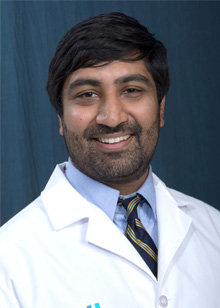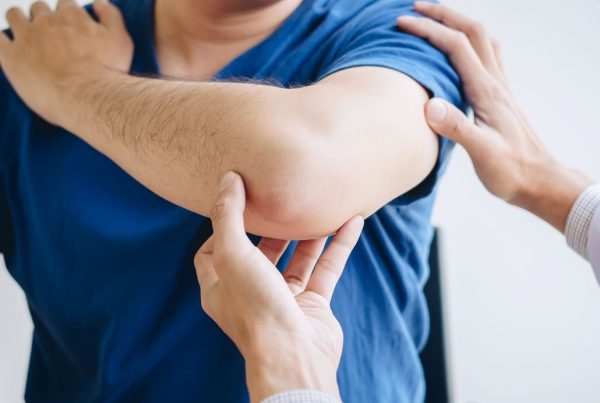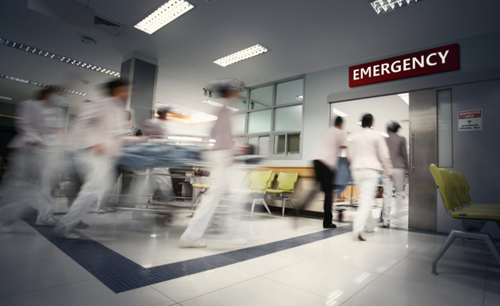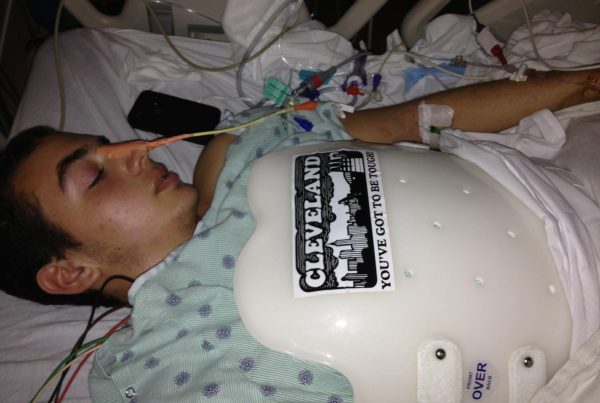MetroHealth’s new ALS Clinic is helping patients with this rare neurodegenerative disease get the right care sooner. MetroHealth provides you with the tools for getting the best care.
Contributed by: Mankaran S. Sawhney, MD | Neurology
Amyotrophic lateral sclerosis (ALS), also known as Lou Gehrig’s disease, is a rare neurodegenerative disease that affects the motor neurons in the brain and spinal cord and causes progressively worsening weakness. It can sometimes take years for patients to receive an official diagnosis, but thanks to the work happening in MetroHealth’s new ALS Clinic, our patients are being diagnosed and getting the right care sooner.
Mankaran Sawhney, MD, Director of the Muscular Dystrophy Association Clinic, is a neurologist and the founder of MetroHealth’s ALS Clinic.
“ALS is a progressive disease that doesn’t have a cure at this time. It affects a patients’ ability to communicate, to use their arms and legs, can causes changes to their thinking, and eventually difficulty to breathe. These patients need a lot of support, so we’ve created a multidisciplinary clinic to respond to those needs,” he explains.
The ALS Clinic isn’t just for patients with an official diagnosis. The team wants providers to refer patients who fit the criteria too. The thinkALS tool provides a framework for clinicians to consider ALS in their patients with typical symptoms: thinkALS™ for Faster Diagnosis | The ALS Association.
“When we strongly suspect people have ALS, we still see them because we think they can benefit from the resources. Because there’s no cure, ALS is a diagnosis of exclusion – we want to find anything else that might be treatable,” Dr. Sawhney explains.
The ALS Clinic is offered bi-monthly at Old Brooklyn Medical Center and has plans to add additional capacity to accommodate more patients.
“We want people to know about us and that this is available. Providers don’t have to refer out to other healthcare systems; we have the capacity to take care of these patients here,” says Dr. Sawhney.
During a clinic visit at MetroHealth, patients with ALS are seen by a multidisciplinary team involving:
Afterward, the team meets in a roundtable discussion to determine the next care steps and resources that could best help the patient along their ALS journey.
After one year of operation, Dr. Sawhney says MetroHealth’s ALS Clinic team treated at least a dozen patients. Although that number might sound small, the impact of these patients being diagnosed sooner and getting the care they need in a comprehensive approach is huge.
“We found that there were patients that were hidden within the System or ultimately being diagnosed elsewhere (at other established clinics in the region). Now, we’re making some of those new diagnoses here at MetroHealth,” says Dr. Sawhney, who runs the ALS Clinic with neurologist and co-founder Daniel Benson, MD.
“It’s truly remarkable to see the magnitude of difference in the level of care our patients receive at the multidisciplinary ALS clinic as opposed to the traditional clinic model,” says Dr. Benson.
Previously, an ALS diagnosis could take several months to years. Thanks to MetroHealth’s ALS Clinic team, a correct diagnosis can be concluded much sooner. Dr. Sawhney says that’s especially important at a safety-net system like MetroHealth because an earlier diagnosis means improved access to care and resources for vulnerable patients.
MetroHealth ALS Clinic
As our understanding of ALS continues to evolve, we strive to stay up to date on the latest research and medical therapies at MetroHealth.
Call 216-778-3958 to schedule or refer a patient to our ALS clinic today.
To learn more, visit metrohealth.org/amyotrophic-lateral-sclerosis












